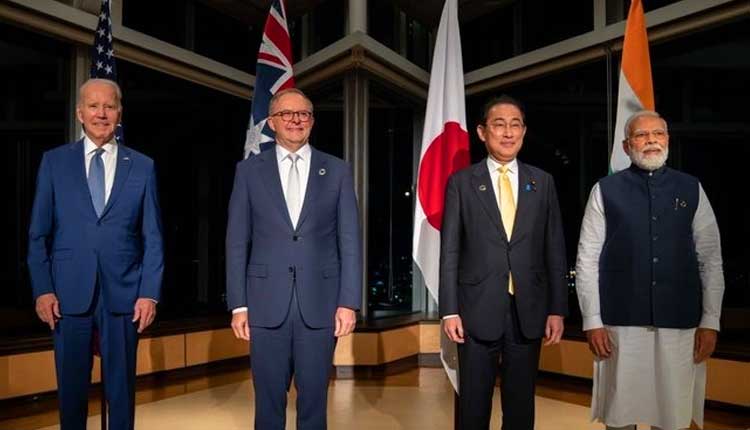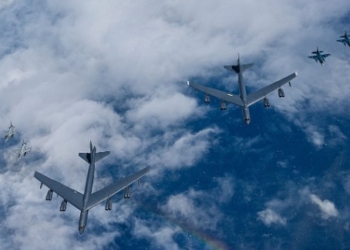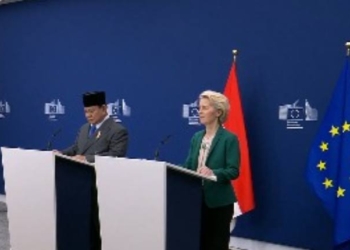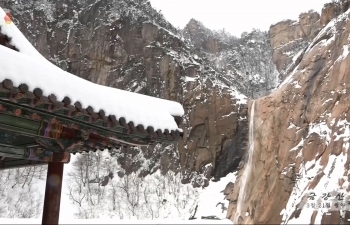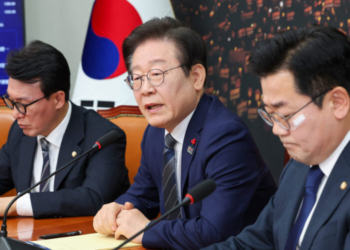New Delhi: The relevance of Quad could not be appreciated better than now when propelled by their overly selfish and disproportionate ambitions, some countries are fomenting mistrust and doubts weighing on regional cooperation for peace and prosperity and mutual coexistence.
It is not only apparent from their unscrupulous and irrational decision of not attending the G20 meeting focused on tourism in Jammu and Kashmir under India’s presidency, but also their ever readiness to peddle untruth and use military power to impose and assert their perceptions and strategic interests with scant consideration of its implications on regional stability and sovereignty of other countries. They jeopardize the global efforts for peace and prosperity to appease their domestic constituencies who are disenchanted with their own governments due to corruption and throttling of democracy and human rights. It is nothing but shortsightedness and mischief.
The Quadrilateral dialogue (Quad) was created as a forum for strategic security dialogue between Australia, India, Japan and US in 2007 to contain such destabilising forces in the Indo-Pacific region. It offers a constructive alternative against military expansionism and bullying of developing countries of the region by emerging powers. On May 20, Quad member countries leaders including Indian Prime Minister Narendra Modi and his Australian and Japanese counterparts Anthony Albanese and Fumio Kishida and US President Joe Biden met on the margins of the G7 in Hiroshima.
The mantra of Quad is cooperation rather than conflict, shared peace and prosperity rather than hegemony and ensuring mutual benefits not only among the Quad members, but also all the willing countries that come along to achieve Quad’s visions. While speaking in the Quad summit on the sidelines of the G7 in Hiroshima, Modi articulated very well what Quad stands for — “We are moving forward with a constructive agenda based on shared democratic values. Through our shared efforts, we are giving a practical dimension to our vision.”
The Quad summit at Hiroshima issued a joint statement in which all the four member countries India, Japan, Australia and US expressed “deep concern over the war raging in Ukraine and mourn its terrible and tragic humanitarian consequences”. The joint statement also underscored the “serious impacts of the war on the global economic system including on food, fuel and energy security and critical supply chains”. The Quad leaders reiterated the importance of upholding the principles of sovereignty, territorial integrity and peaceful resolution of disputes.
The Australian Prime Minister emphatically highlighted the need for an open, stable, secure and prosperous Indo-pacific following Modi’s designation of the Indo-Pacific region as the engine for global trade, innovation and development. Despite avoiding direct naming, the Quad leaders’ underlying reference in most of their utterances was China’s over-activism in the Indo-Pacific region to assert its strategic dominance as a threat to peace and prosperity of the region.
It is not a hidden fact how China has tried to flex its military muscles from the South China Sea to Taiwan, Hong Kong and even Pacific Island states. The joint statement of Quad shows its resolve to contain such misdemeanors — “We seek a region where no country dominates and no country is dominated, one where all the countries are free from coercion, and can exercise their agency to determine their future. Our four countries are united by this shared vision.”
The Belt and Road Initiative (BRI) of China has evoked suspicion due to undertaking over-sized and economically unfeasible projects in Afro-Asian countries which finally land up these countries into Chinese debt trap and lead to financial instability. The recent examples of this are Sri Lanka and Pakistan. The Quad is trying to offer an alternative to BRI to the developing countries. The Quad has initiated Quad Infrastructure Fellowship Programme to support policy-makers and practitioners to design, build and manage sustainable and viable infrastructure in their countries.
The Quad members are also committed to protecting submarine cables from any possible Chinese aggression in view of China’s growing assertiveness across the Indio-Pacific. To avert such a possibility, the Quad partnership for cable connectivity and Resilience aims at leveraging their collective expertise in design, manufacturing, laying and maintenance of undersea cables to secure and diversify these critical networks. The Quad is working on a collective vision of maritime security as well.
The Quad leaders in their Hiroshima Summit also asserted that the coalition will work with its regional partners to strengthen the capability to prevent, detect and respond to threats posed by terrorism and violent extremism, consistent with international law. There are countries like Pakistan and its other tacit partners who provide safe heavens and funds to terror outfits and often collaborate for the so-called Islamic Jihad. They are undeterred notwithstanding the fact that they themselves are victims of terror of their own creation. India’s rise as the most vibrant democracy and global economic power house also irks some of them whose democratic credentials are very poor while their economies are in shambles. Quad is committed to eradicate terrorism.
However, Prime Minister Modi made it clear that Quad partnership would go much beyond cooperation for security. He emphasized that groups cooperation is also increasing in other key areas such as climate action, disaster management, health security, strategic technologies, reliable supply chains, etc.
The Quad leaders also released a quad vision which was well articulated by Japanese Prime Minister Kishida, who said: “The Quad is committed to cooperation and not division and confrontation.”
He also solicited the support of ASEAN, South Asia and Pacific Island states for an open and secure Indo-Pacific.
India would host the next Quad Leaders Summit in 2024. Presently India is leading the G20. India’s credibility as a democratic country with principled and neutral foreign policy is time tested.
Quad offers an example how modern democracies collaborate for shared vision of peace and prosperity and a global environment free from politicking for narrow, unfair and nefarious agenda intending to damage and hurt other countries interests. Quad is about positive engagement for a better, safer and freer world.
(IANS)




